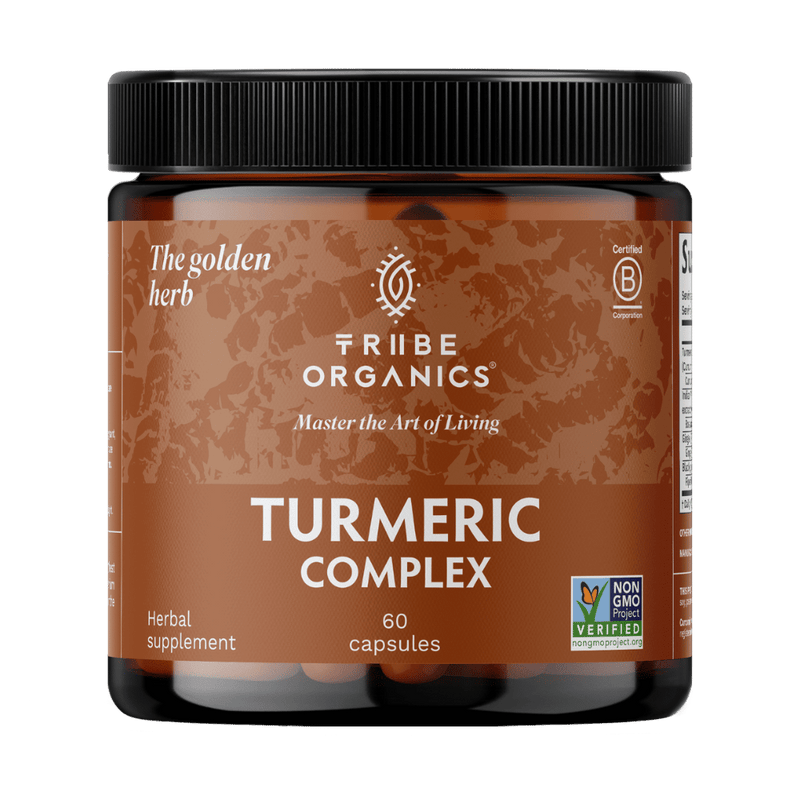Headaches are a common occurrence in humans and are usually benign. On the other hand, migraine attacks are severe and generally require pain relief medication. Both instances can cause debilitating pain.
In modern times, people often turn to natural remedies for migraine treatment to save themselves a trip to the doctor and potentially expensive prescription medications.

The Causes Behind Migraine Attacks and Headaches
Headaches often happen independently without any underlying health conditions to cause them, but migraine symptoms are common in numerous other health conditions. The painful sensation of a headache can affect any part of a person’s head. Migraine pain is similar and can be sharp or dull. Migraine is considered a chronic and lifelong disease, and is recognized as a significant neurological disorder that can have a lasting impact on the nervous system. There are numerous methods of dealing with a migraine headache, but the best course of action depends on the cause of the headache itself. Headaches and migraine attacks are caused by the following (not limited to): - Depression or anxiety - High systolic blood pressure - Weather changes (weather sensitivity) and other environmental factors - Injuries (i.e. concussions), disabilities, and other physical issues - Critical risk factors such as inflammation and neuroendocrine imbalances It’s also worth noting that there’s no universal way to describe headaches. Because of this, the creation of headache types was necessary to give a more accurate representation of migraine triggers and their influence on proper brain function. Migraines are classified among neurological disorders and are often a lifelong disease, requiring ongoing management due to their persistent nature.
Headache Types
Primary Headaches
Primary headaches are not caused by any underlying health issues, and they mainly occur due to specific circumstances, not necessarily related to health either. One situation that could cause them is the overuse of pain medication.These types of headaches can also happen to an individual due to certain structural problems with the neck and head. Overall, they are relatively easy to diagnose and generally don't take long to deal with.
Secondary Headaches
Secondary headaches are problematic because they are caused by underlying health issues. Migraine symptoms usually coincide with these types of headaches, which may need preventive medications to offer relief to the patient after a while. These preventive medications are often considered a form of prophylactic treatment, aiming to reduce the frequency and severity of migraine symptoms. Some conditions that feature headaches or migraines as symptoms are allergies, hypothyroidism (where the thyroid gland doesn’t work as well as it should), and more severe health issues. Secondary headaches often come with additional symptoms such as neck stiffness, confusion, fever, or sensory changes.
Headache Sub-categories
Chronic Headaches
A chronic headache or a chronic migraine is a consistent occurrence of pain. Headache days are numerous, so pain management is essential during this time. They can sometimes be predicted, after which migraine prevention is prescribed to the patient, but overall, chronic headaches are a pain to deal with (pun intended).If you're suffering from consistently painful episodes, it's best to consult with a certified medical professional who will give you the most efficient treatment available.
Episodic Headaches
Episodic headaches are seemingly random and generally last for a couple of hours, after which the pain dissipates. In most cases, episodic headaches aren't serious and usually require minor treatment.
Most Common Types of Primary Headaches
Migraine Attacks
Migraines are the most well-known type of chronic headache that we know of. Migraine patients continuously experience excruciating pain, which isn’t easy to get rid of. Even when they take pain medication, there is no guarantee it’ll help. Migraine pain can be described as pulsating or throbbing, and it usually affects only one side of the head at a time. Severe migraine symptoms include vomiting and nausea, and patients generally experience heightened sensitivity to light or sound. Both the severity of migraine attacks and migraine frequency are key factors in evaluating the impact of migraines on patients' lives.
Cluster Headaches
Cluster headaches result from an inflammatory response around an eye or one part of the head. Treatments aimed at reducing inflammation may help alleviate cluster headache symptoms. They are very painful and long-lasting, usually going on for months on end.When a cluster headache happens, it can last between 15 minutes and several hours.
Tension Headaches
Tension headaches are arguably the most common type of headache. They occur during the day and usually begin in the neck, spreading to other parts of the head as time passes. In most cases, tension headaches can be dealt with by stretching and avoiding sudden movements.Turmeric Helps Treat Migraines and Headaches - True or False?
Now that we’ve gotten headache types out of the way, let’s look at why they happen. Migraines are ‘activated’ by two enzymes that contribute to neurogenic inflammation and pain in the Central Nervous System (CNS). These two enzymes are cyclooxygenase-2 and nitric oxide synthase (COX-2 and iNOS, respectively). Drugs used to treat migraine attacks inhibit these enzymes, preventing future attacks from occurring.
As for taking turmeric to deal with migraines, one clinical trial has shown that curcumin supplements (curcumin being the active ingredient and active component of turmeric) and omega-3 fatty acids (ω 3 and ω 3 fatty acids) suppress the iNOS and COX-2 gene expression and serum levels. This was a placebo controlled clinical trial and a double blind clinical trial, highlighting the importance of placebo controlled trials and placebo randomized clinical trials in migraine research. The study included 74 migraine-afflicted human volunteers over a 2-month period, divided into four groups that received a specific type of treatment—omega-3 fatty acids, curcumin, a combination of both, and a placebo-controlled group. This study concluded that the benefits of turmeric, combined with ω 3 fatty acids, led to a significant reduction in the duration, frequency, and severity of headaches.
Other clinical trials and experimental and clinical studies, including those evaluating nano curcumin, nano curcumin supplementation, curcumin supplementation, curcumin capsules, and various curcumin formulations (such as phytosomal curcumin, phytosomal curcumin supplementation, and liposomal curcumin), have reported beneficial effects for migraine prophylaxis and controlling migraine. Clinical studies investigating the combination of curcumin with coenzyme Q10 and ω 3 fatty acids have shown synergistic effects, with significant reduction in inflammatory markers, gene expression and serum levels, and oxidative stress biomarkers. These studies often measure serum level changes as indicators of treatment efficacy. Curcumin, as the active component in turmeric, is being tested in oral curcumin and other delivery forms, and is considered a promising candidate for migraine prophylaxis and controlling migraine, but more research and systematic review are needed to confirm these findings.
Some studies have also evaluated experimental effects of curcumin on arthritis inflammation and joint pain, noting its anti-inflammatory properties. It is important to consider other medications when using turmeric or curcumin supplements, as interactions may occur. Many of these findings are based on studies with human volunteers and are grounded in the field of medical sciences.
Turmeric Usage for Headache and Migraine Relief
Turmeric is up there near the top of the‘food’ chain when it comes to natural remedies. With that said, if you want to treat migraine attacks effectively, simply adding it to your meals won’t be enough. Curcumin, the active ingredient and active component in turmeric, makes up only 3.14% of the turmeric root, and its anti-inflammatory compounds aren’t strong enough to stop a headache. You will have a better time drinking turmeric tea, but it still won’t be the best headache-solving option. The third (and best) method of taking turmeric for reducing oxidative stress and dealing with headaches is in the form of turmeric supplements. Oral curcumin, curcumin capsules, and various curcumin formulations—including liposomal curcumin and phytosomal curcumin—are designed to enhance absorption and efficacy. Curcumin supplementation in these advanced forms can improve bioavailability and therapeutic effects. Phytosomal curcumin supplementation is another delivery method being explored for migraine relief due to its superior absorption. One encapsulated pill of Curcumin supplement is enough to stop a mild headache. However, if you want to take it up a notch and fixate on dealing with all kinds of migraines (vestibular migraine as an example), then taking black pepper extract in conjunction with Curcumin supplements is ideal. This combination can increase absorption by 20-times.
Negative Side-Effects of Turmeric Use
Although turmeric by itself doesn’t cause any harmful or annoying side effects, taking too much of it isn’t recommended. Here are a couple of things to look out for before choosing turmeric as your headache treatment of choice:
- Taking higher doses of turmeric can cause nausea, digestive discomfort, and headaches
- Turmeric should be avoided if you’re using blood thinners because turmeric is a natural anticoagulant
- People with diabetes should consult with a certified medical professional because turmeric can lower an individual’s blood sugar levels.
- If you are taking other medications, including prescription or over-the-counter drugs, consult your doctor before using turmeric, as it may interact with other medications.
When Should you Avoid Using Turmeric and Turmeric Supplements?
Turmeric should also be avoided in the case of pregnancy or nursing. If you have scheduled surgery in the future, do not take turmeric less than a couple of weeks before the surgery because its antioxidant capacity can prevent clotting and cause complications.Additionally, turmeric contains oxalates which can increase the production of kidney stones. So, if you're suffering from kidney or liver disease, or are currently going through the process of releasing kidney stones, do not take turmeric for migraine or headache relief.
Does Turmeric Cause Migraine Symptoms?
Somewhat surprisingly, turmeric can cause headaches and common migraine symptoms. This only happens when individuals take high doses of turmeric, after which other symptoms may also appear. These effects have been observed in evaluated experimental and clinical studies. Due to numerous studies on the subject, it’s better to keep within the recommended dosage since more (in this case) doesn’t mean better.
Final Words
Headaches are problematic and can be annoying, especially in high-stress environments. Pain medication isn't always a great idea, and taking them too often can lead to other health problems down the line.This is one of the reasons why people have turned to natural remedies to deal with certain ailments that don't always require a trip to the doctor. Turmeric is not just a tasty spice; its anti-inflammatory properties are useful in combating a variety of health issues. And, the combined effects of black pepper extract and Curcumin supplements are excellent for reducing oxidative stress and eventually reducing the effects of a migraine on an individual.
Shop best sellers
Explore our collection of favorite items that have gained popularity for their quality and satisfaction.
























